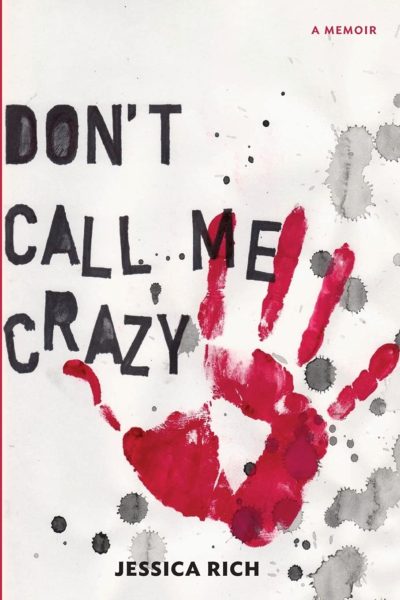‘Mental illness sucks the life out of everything’: a review of ‘Don’t Call Me Crazy’
Audio Player
*If you or someone you know may be struggling with self-harm or suicidal thoughts, you can call the U.S. National Suicide Prevention Lifeline at 800-273-TALK (8255) any time day or night, or chat online. For on-campus resources, visit aggiewellness.usu.edu/library/suicide.
Jessica Rich was a Utah girl, born and raised in Cache Valley. She loved the mountain ranges in Logan and missed them when her family moved to Iowa in 2008. Rich was named the second-best high school artist in Iowa during her senior year. She was the valedictorian. The “A” student. The high achiever.
Rich took her own life on Jan. 13, 2021, leaving behind a suicide note, a book and a heartbroken family.
Jessica’s sister, Rachael Mathias, reached out to me after I wrote an article about Olivia Larsen, who was unofficially evicted from Oakridge student housing in Logan. In her email, Mathias told me that her sister had a very similar experience at Brigham Young University-Idaho.
Rich struggled with a plethora of mental illnesses including social anxiety, depression, ADHD, OCD, PTSD and towards the end, schizophrenia. In her book, Rich wrote, “mental illness sucks the life out of everything.” Rich worked hard in school but struggled with her mental illnesses. As Rich neared the end of her college education, she became suicidal. She found herself in a noose one night, scared and cried out for help. Luckily, Rich had roommates close by to help her.
After getting Rich out of the noose, the police were called. Rich was escorted out of her apartment in handcuffs, like a criminal. Her parents were 1,000 miles away, but they drove through the night to get Jessica out of the mental health hospital she was put in.
Rich was immediately removed from BYU-Idaho because she had become “a liability to her roommates.” Rich was not allowed to continue attending BYU-I unless her parents moved to Idaho to provide her with housing.
Jessica Rich’s cry for help may have saved her life that day, but it also got her removed from college and prevented her from getting a degree in art education. According to Mathias, Rich only had one semester left to complete her bachelor’s degree.
Three years later, Rich got in contact with a counselor at BYU-I and was awarded a degree in professional studies.
Mathias told me that after all that, her sister wasn’t the same. “Trying to think of anything that Jessica didn’t try is difficult,” Mathias said. Rich had been on every imaginable medication combination for her various illnesses. “She tried everything. We just, we weren’t making progress.”
Towards the end of her life, Rich showed signs of schizophrenia. She introduced her parents to people who weren’t there, accused people of doing things they didn’t do and became less trusting of those around her. She withdrew from her family and into herself.
“It just felt like she was pulling back into a shell and saying ‘I’m not going outside this shell,’” Mathias said.
Mathias was pregnant when Rich took her own life but decided to finish the work that took up three years of her sister’s life: Rich’s book.
“Don’t Call Me Crazy” was published on June 15 — Jessica Rich’s birthday. The book is a memoir/autobiography that was written by Rich and edited by Mathias.
It’s raw, emotional and heartbreaking.
Rich talks a lot about the stigmas that come with mental illness and how she deals with them. Her complex trains of thought dominate the text. She validates her habit of lying to people when she writes, “honesty about mental illness will only ever be the clear best policy when people stop treating me like a criminal or sinner when I say I have depression.”
In other words, Rich felt she couldn’t be honest about her illness because of the way people treated her when she did.
“Treat me like a person, not an illness,” Rich writes.
This heartbreaking story is available for purchase on Amazon.
 Emily White is a junior studying English and print journalism. She is currently serving as the content manager for the Lifestyles section of the Statesman.
Emily White is a junior studying English and print journalism. She is currently serving as the content manager for the Lifestyles section of the Statesman.
—emily.white@usu.edu


